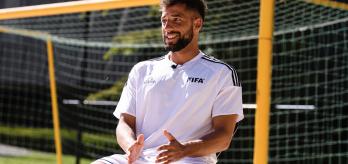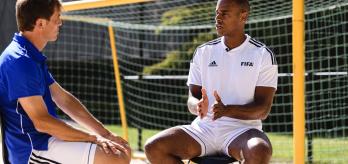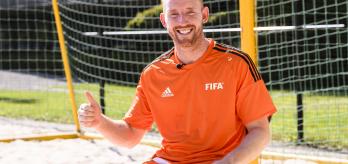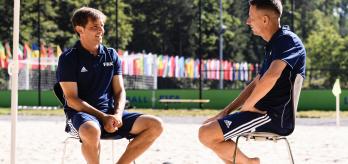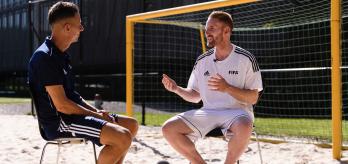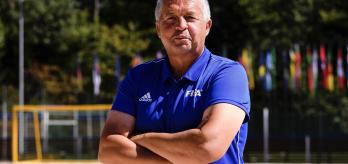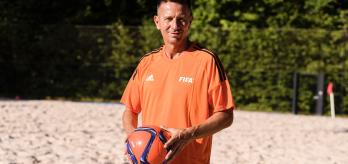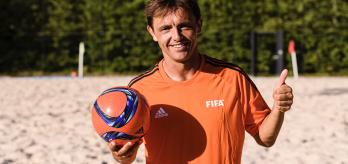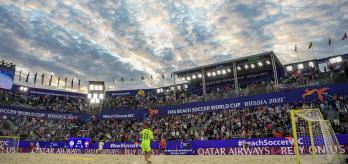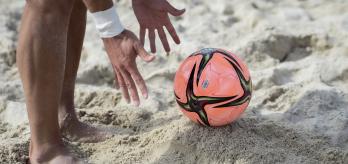In a wide-ranging interview about all things beach soccer, FIFA Beach Soccer Technical Expert Ramiro Amarelle and Edu Suárez discuss the various technical moves involved in this form of the game and their application in match scenarios. Suárez offers an insight into how he has developed into one of the most potent finishers in the sport and how the bicycle kick has become a key weapon in his armoury.
Watch Interview
Read summary
Part 1- discovering beach soccer and the key differences between the sport and association football
In the first part of the interview, Suárez reveals how he started out in beach soccer and highlights the main differences between the sport and association football. After having transitioned into the game from football, he explains how he adapted to its unique playing surface, before commenting on why aerial skills are one of the most important attributes in beach soccer.
Part 2- the journey to becoming a deadly finisher
Suárez outlines the training programme he followed to develop his aerial game, while Amarelle underscores the importance of individual training in allowing players to improve their skill set. The former Spain international asks Suárez about his status as a specialist finisher and the key elements behind his development in this regard. The Granotes forward talks about the role that analytical training played in helping him to become so effective in front of goal, while noting that having previously operated in different positions served to enhance his game understanding. The Levante attacker closes this part of the interview by offering an insight into his training regime, revealing how the high repetition of basic technical exercises enabled him to progress his game.
Part 3- a forward’s movement and psychological development
The third part of the interview sees Amarelle and Suárez discuss the various strategies that an attacker can call on to free themselves of their defender or create space for their team-mates. The La Roja frontman emphasises just how important it is for forwards to engineer space for their team-mates and not focus purely on scoring goals. The pair also touch on the importance of psychological development as a part of the journey to becoming a better beach soccer player. Suárez rounds off this section by explaining how he goes about occupying the spaces that allow him to showcase his powerful bicycle kick.
Part 4- type of training and self-awareness
In the final section of the interview, Suárez comments that the key to becoming a good finisher lies in high-repetition training. He states that players should work on both the strong and weak aspects of their game. The pair agree that an element of self-criticism is required in order for a player to enhance their performance levels.





